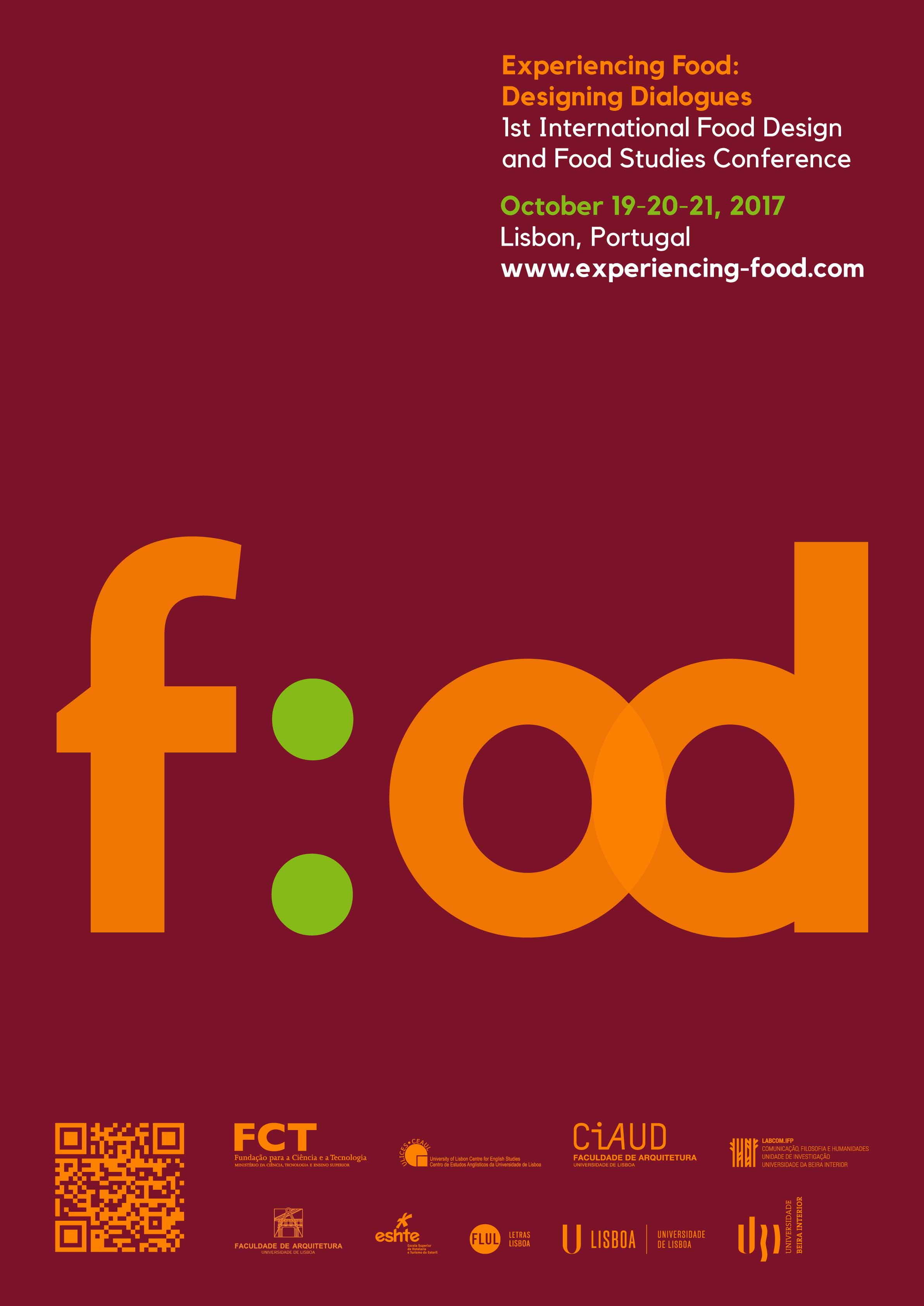Experiencing Food: Designing Dialogues
October 19, 20, 21
Lisbon, Portugal
FOOD and interdisciplinary research are the central focus of the 1st International Conference on Food Design and Food Studies: Experiencing Food, Designing Dialogues, reflecting on interdisciplinarity as not limited to the design of objects or services, but seeking awareness towards new lifestyles and innovative approaches to food. Albeit the social sciences, through Food Studies researchers, have continuously looked for how food influences and shapes society, there is a growing interdisciplinary interest in Gastronomy, similarly to Design, where more projects try to solve problems related to different food systems. Worldwide academia and media are currently discussing examples of these Design processes around food and this emerging phenomenon: Food Design. Design, Gastronomy and Culture interact at different levels and shape the food production, communication and distribution by valuing and bringing to life aspects much wider than the mere question of feeding as an act of survival.
In Portugal, there has not been much research on the relationship between Design and Gastronomy; hence the relevance of pairing the enormous attention given to restaurants and chefs, researchers and professionals with the impacts of Food Design. Additionally, a new sense of social responsibility emerged, where chefs and designers react to face the challenge of a positive change in the paradigm of food. The latter only recently looked at food and food services from different perspectives, developing and applying new theories, as food became the focus of the various areas of Design – either from Graphic Design to Product Design, or from Architecture to Communication. Numerous aspects influence such a relationship between food and Design, since Chefs use Design techniques and tools to create new dishes, experiences, and services, even if they are unaware of it.
Food systems are at their maximum resource capacity and designing new ways of thinking about food will possibly bring a different approach to generate sustainable solutions. Accordingly, food production professionals have developed a desire to share knowledge about food, creating new communication networks open and accessible to everyone, where ideas can be freely expressed through creativity, innovation, experimentation and dissemination. Ultimately, rising consumer awareness about economic and social matters on food production – as a response to recent globalism, a concern for the environment or a practical solution to local economic development – brought Design Thinking to the core of many of these issues.
Abrir para mais informação






